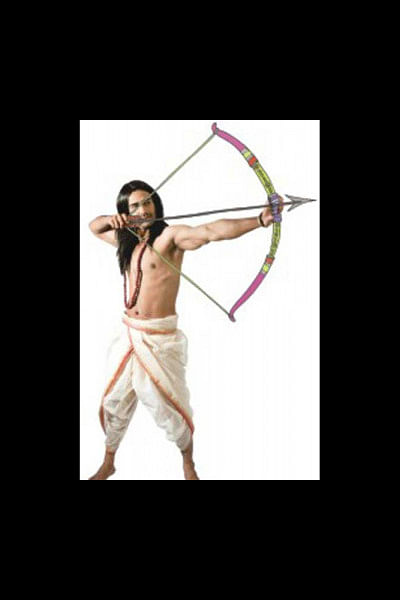Grandma's treasure trove

It's not the world of wizardry. Not a legend of hobbits either; no middle earth to fight for, no Aragorn, Gandalf and no ring. Yet it is a poignant account of human interactions; the timeless chronicle of battle for good against all evil.
It is a captivating tale of enchantment where lives of princes remain hidden inside pomegranates, beautiful princesses lay motionless, in deep slumber, till prince charming swaps the fabled 'shonar kathi' with 'rupar kathi.'
For over a century, the compilation of Bengali folk tales by Dakshinaranjan Mitra Majumder- Thakurma'r Jhuli - has enthralled readers, from tiny tots who sleep on grandma's lap listening to timeless stories of monsters, demons, kings and queens, to mature adults who can appreciate the complex messages portrayed by the characters in these fairy tales at a new level.
As a matter of fact, during the initial years of publication, Thakurma'r Jhuli was considered a major work with strong political bias, where the evil stood for the colonial Raj and the good was the nationalistic verve that existed throughout Bengal in the early 1900s.
Although in western literature 'fairies' play a dominant role in 'fairy tales', the Bengali 'Rupkotha' is most often devoid of these mythical creatures as evident from the collection of Thakurma'r Jhuli. Poignant human stories prevail; fantasy, magic and spells are associated with the narratives but they are never the central bases of the stories.
Women are, more often than not, central to the plot. Although most often the victims, they are the ones who battle evil and emerge as the victors. Although the portrayal of feminine characters have been interpreted in many ways by scholars, one thing is clear, the power of womanhood is not undermined in these tales, although they themselves are crudely patriarchal in nature.
The charm of grandma's folktale however lies not in the inherent message they convey but in the distinct style in which they have been transmitted over the ages. The style, selection of words, the plot- each adds to the allure of these tales.
Cross-cultural interactions have brought western literature to our doorsteps. And unfortunate it may seem that Hans Christian Andersen, Aesop or even recent trends like Roald Dahl and Rick Riordan are now more common names than Dakshinaranjan Mitra Majumder, and Dinesh Chandra Sen.
Folk tales and fairy tales are brewed from society. Although writers extrapolate and reinvent the plot, the original tone and the message of the stories remain. The compilation of Majumder is rich in the sense that it preserves the narrative of the origin of the stories - tales from the Mymensingh region of undivided Bengal- but inherently preserves the language used by story tellers of the time- grandmas, mothers and womanfolk of the household.
Almost one hundred years after its publication, Thakurma'r Jhuli once again reaches a crossroad when nationalistic ideologies have gained a comeback. People are now conscious and keen to rediscover the heritage of the country.
Thakurma'r Jhuli, contrary to popular belief is Bangladeshi in origin. Not only is its writer born and brought up in East Bengal, the stories featured in the book are essentially the folk tales of the region now comprising Bangladesh.
To judge a folktale, one must assess its essence and its ability to transcend time. Although not quite the bedroom read, it has mesmerized readers for over ten decades, and with its revival it will continue to do so for eons to come.

 For all latest news, follow The Daily Star's Google News channel.
For all latest news, follow The Daily Star's Google News channel. 



Comments